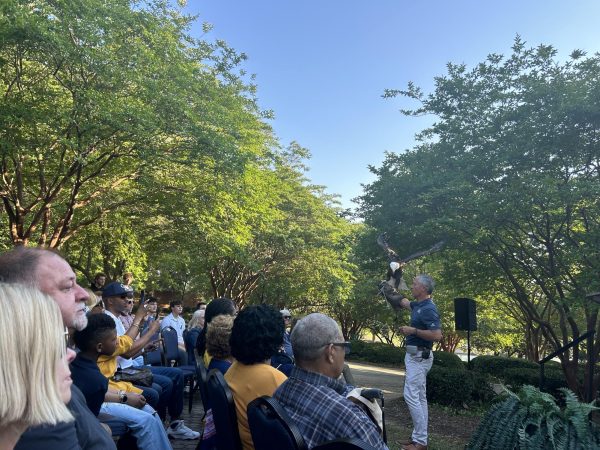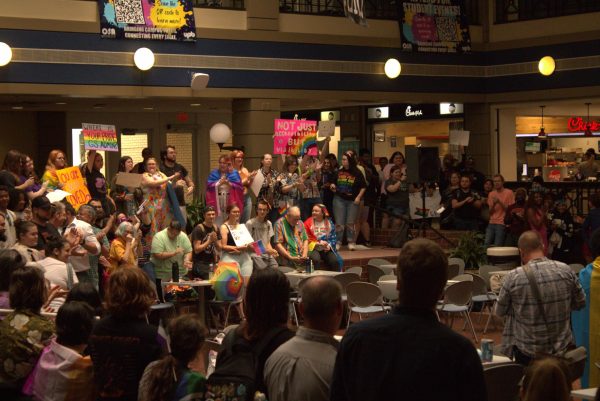Panel discussion informs students about ISIS
September 16, 2014
On Thursday, September 11, professors and students filled the Russell Union Theatre with questions and discussion points regarding ISIS and the current conflicts in Syria and Iraq.
Dr. Ahmet Akturk, history department assistant professor, Dr. Darin Van Tassell, political science department associate professor, Mr. Youssef Salhi, foreign languages department lecturer, Dr. Glynn Ellis, center for international studies instructor and Dr. Jacek Lubecki assistant vice president and director of the center for international studies, spoke about the historical background, the Unites States foreign policy and agenda, the military aspects and the public opinion in the Arab region.
Students asked questions about the situations and were given a better understanding of the current events in the Middle East.
Q- What is ISIS and what makes it different from other terrorist groups?
A- ISIS is a terrorist organization that is stronger and more strategically organized than other groups in the past. The group has a standing army and controls and governs its own territory. They are unique because they are more powerful than any other terrorist organization. ISIS specializes in fear and uses pictures and videos to instill fear in people through social media. The group’s revenue comes from robbery, donations and money from the oil fields in eastern Syria that they have control of.
-Dr. Ahmet Akturk
Q- How did ISIS take over these areas so easily in the first place?
A- For the past few years, Syria has been in a civil war type of situation. They are trying to get rid of their president and have formed rebel fighting groups. The rebel groups and the army are fighting against each other already. Because of this, it was easy for ISIS to have power and take over certain areas in Syria.
-Dr. Darin Van Tassell
Q- I’ve heard several professors talk about ISIS as more of a military group than a terrorist organization. Which one is it?
A- It is a terrorist organization with its own army. Either way, they are killing many people and need to be dealt with.
-Dr. Van Tassell
Q- Are the members and supporters of ISIS all from the Middle East?
A- No. More than 12,000 foreigners are believed by intelligence services to have moved over to join ISIS. These people have come from 81 different countries.
-Mr. Youssef Salhi
Q- What actions can we expect for the United States to be taking?
A- The government is getting many different pressures about what to do in response to this situation. There will be efforts for coalition building. There will be many air campaigns instead of fighting on the ground. Obama spoke about the military response last night, and next week he will be speaking for the security council. The question now has become “Is this a war of choice or of necessity?”
-Dr. Glynn Ellis














